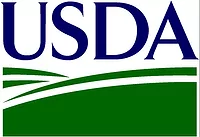Preparing for New Food Safety Mandates

Soon, companies producing or handling foods on the FDA's Food Traceability List (FTL) will be required to generate and maintain more detailed records under the proposed rule that aims to supercharge the traceability of foods. Items such as leafy greens, tomatoes, melons, nut butters, ready-to-eat deli salads, finfish and crustaceans, and all types of fresh-cut fruits and vegetables are among nearly 20 categories of common fresh and processed foods on the list.
These foods are singled out for more detailed tracking information because they are the most common sources of foodborne illness outbreaks in the U.S., thereby designated by FDA as "high risk." The FDA's proposed Requirements for Additional Traceability Records for Certain Foods (Food Traceability) rule implements Section 204(d) of the Food Safety Modernization Act (FSMA), and is a key component of FDA's New Era of Smarter Food Safety Blueprint. When finalized in November 2022, the rule would specifically require persons who "manufacture, process, pack, or hold" foods on the FTL to record certain Key Data Elements (KDEs) associated with different Critical Tracking Events (CTEs) in the supply chain. The proposed compliance date is within two years after the regulation is finalized.
The new mandatory recordkeeping procedures would go beyond the typical "one up, one back" traceback to incorporate more robust data; under 204(d), each product needs its own unique identifier and traceability lot code to be captured at every step in the supply chain process. Supply chain partners will have to maintain the data in their systems for two years and provide it to FDA within 24 hours in the event of an outbreak so that investigators can determine next steps, such as withdrawal or recall of the affected products, as quickly and accurately as possible.
Sharing additional data could dramatically change the entire food system by enabling full, end-to-end traceability. Although the rule applies only to the identified FTL foods, wider adoption across other food categories could extend the benefits even further. The ultimate beneficiary will be the consumer, with more proactive procedures in place to ensure the safety of the U.S. food supply.
Standards Support Collaboration
Traceability is a joint responsibility—it cannot be accomplished without collaboration between all supply chain partners. Standardized data systems are the key to sharing supply chain details between stakeholders in a timely and efficient manner. Throughout retail, grocery, foodservice and many other industries, GS1 Standards are already being implemented to enable a multitude of benefits beyond traceability, such as improving supply chain efficiencies and inventory management. These standards include:
- Product identification with Global Trade Item Numbers (GTINs) that uniquely identify an item and make it visible in the supply chain. The GTIN can be embedded in a UPC barcode for use at checkout or in a GS1-128 barcode used to identify cases and pallets, which can also encode additional data such as expiration dates, batch/lot/serial numbers, quantities, weights, and other product information.
- Location identification with Global Location Numbers (GLNs) that identify locations and parties such as a farm or field, a packing house, a manufacturing plant, a wholesaler, a loading dock, a grocery store, a restaurant, and more.
- Master product data-sharing via the Global Data Synchronization Network™ (GDSN), a global network that allows trading partners to share trusted product data. This automated data exchange helps in meeting new consumer demand for accurate, complete, and consistent product information.
- Transactional data sharing via Electronic Product Code Information Services (EPCIS) processes transaction events like shipping or receiving information to maintain a complete product history along the entire supply chain.
The same data standards already in use for sharing product, location, and event information can be used to meet the proposed rule's new recordkeeping requirements. GS1 US has been working with industry to identify how best to leverage GS1 Standards for tracking CTEs and KDEs. Critical tracking events include growing, receiving, creating (manufacturing or processing), transforming, and shipping; different KDEs will be required for each event, depending on the commodity being tracked.
Looking for quick answers on food safety topics?
Try Ask FSM, our new smart AI search tool.
Ask FSM →
In the event of a product withdrawal or recall, there is no time to lose; sharing product, location, and other supply chain data in standardized language is crucial for companies to effectively communicate with one another in real time about product status and movement from farm or point-of-manufacture to point-of-sale or consumption. Without data standards, precious time could be lost reconciling records, creating an increased risk of errors and making it difficult to meet the anticipated FDA 24-hour request for response.
Technology Enhances Traceability and Transparency
While spreadsheets can be used to satisfy FSMA requirements, more sophisticated companies are moving to implement automated systems, even exploring the potential of solutions like blockchain to facilitate trusted, tech-enabled traceability through an immutable, decentralized information system. In fact, the FDA is encouraging industry to digitize their supply chains to support instantaneous, automated data exchange to enhance product traceability.
A seafood pilot study revealed how GS1 Standards help industry achieve interoperability across traceability systems, including blockchain, cloud, or other technologies to optimize data-sharing. The pilot was conducted by GS1 US in collaboration with the Global Dialogue on Seafood Traceability, the Institute of Food Technologists, Beaver Street Fisheries, Bumble Bee Seafoods, Chicken of the Sea, FoodLogiQ, IBM Food Trust, Insite Solutions/Norpac, ripe.io, SAP, Walmart, and Wholechain. It validated that as blockchain and other technologies scale and mature, data standards will be critical for interoperability.
Additionally, many food industry manufacturers and retailers are going beyond the immediate FSMA 204(d) requirements to deliver on heightened expectations being driven by consumer desires for deeper product information. This includes transitioning to two-dimensional (2D) barcodes that have the ability to convey limitless information to both consumers and supply chain stakeholders in real time and via machine-readable format. As part of an initiative dubbed "Sunrise 2027: A New Dimension in Barcodes," industry has committed to prepare for the ability to scan 2D barcodes at point-of-sale across retail by 2027.
Harmonized Systems Help Fulfill New Era Vision
In announcing the proposed rule, Frank Yiannas, FDA's Deputy Commissioner for Food Policy and Response, made it clear that harmonizing the food system is critical to helping prevent food safety issues before they arise. He explained the importance of modern, effective traceability systems that are universally understood and utilized, and shared the vision behind the New Era Blueprint, with the proposed rule creating a "first-of-its-kind standardized approach to traceability" and "paving the way for industry to adopt and leverage more digital, tech-enabled traceability systems both in the near term and the future."
Supply chain partners involved in handling FTL foods should not wait to begin developing a plan for meeting the proposed Food Traceability Rule requirements. As with any interoperable data solution, one weak link—i.e., one entity that is unable to maintain and exchange the necessary data in a way that partners can understand, update, and send to the next entity in the supply chain—will prevent full traceability. Two years is not a lot of time for the work that will need to be done, although stakeholders that have already begun implementing GS1 Standards have a leg up on data generation and harmonization.









